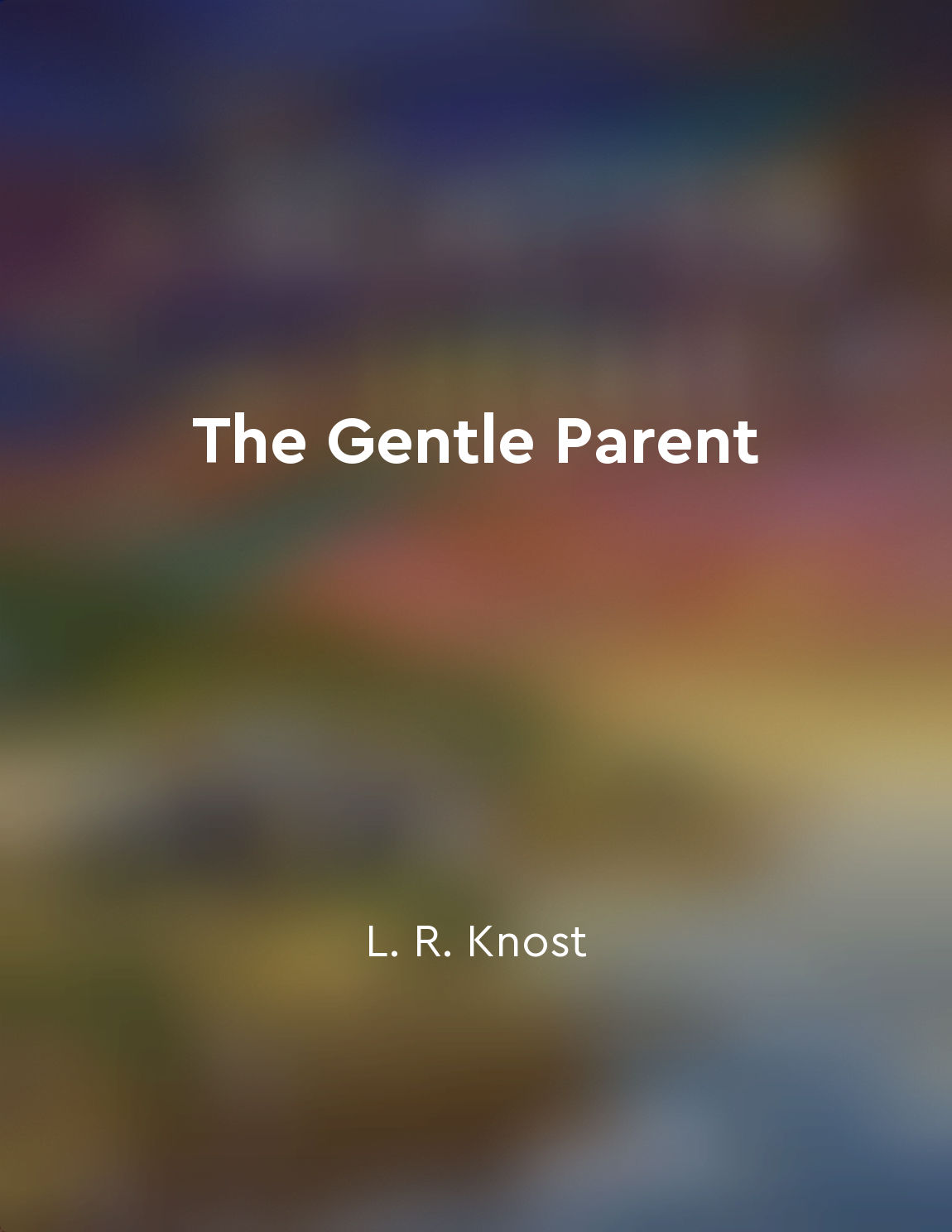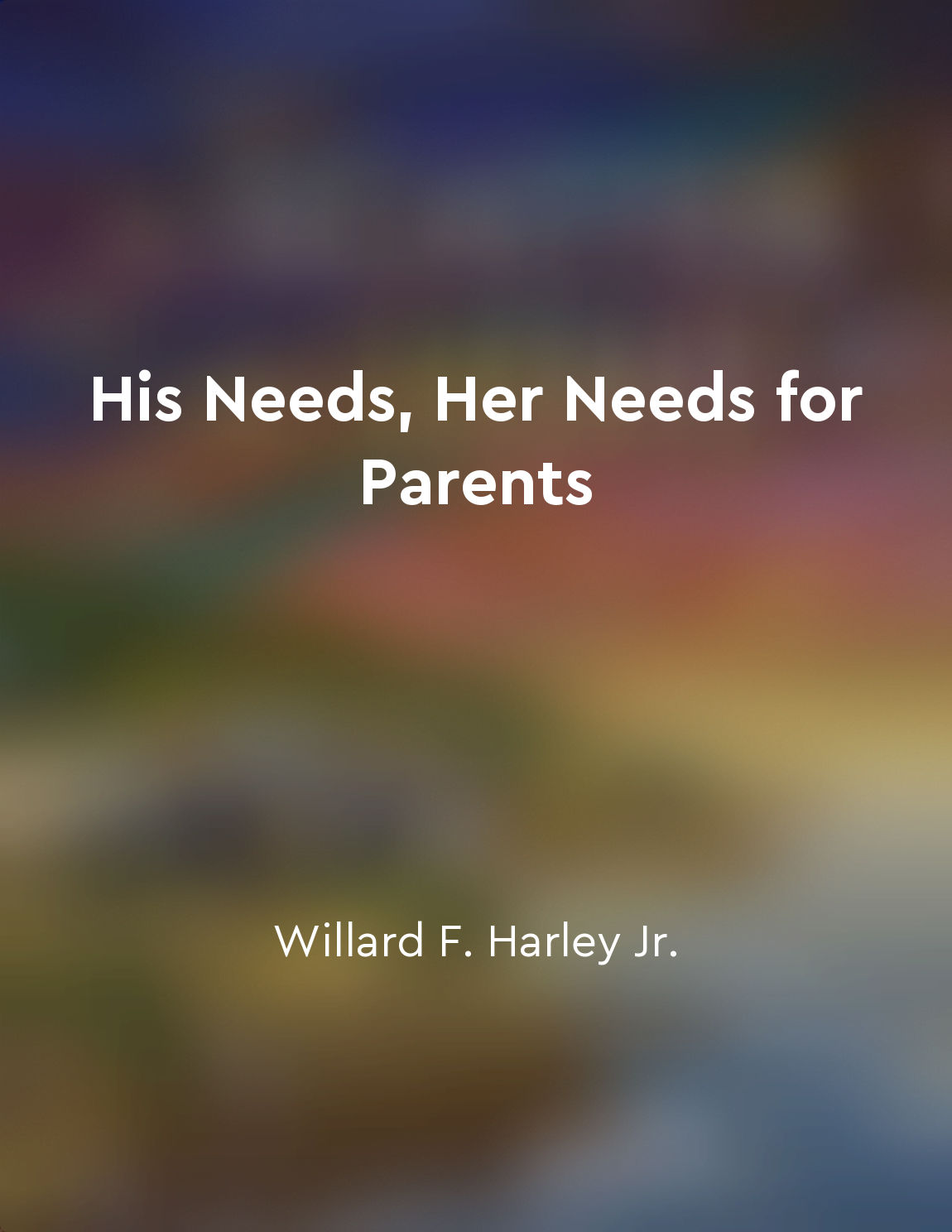Stay calm during discipline from "summary" of 1-2-3 Magic for Christian Parents by Thomas W. Phelan
Discipline is a necessary part of parenting. However, it can also be a stressful and challenging experience, especially when emotions run high. When faced with a misbehaving child, it can be easy to lose your temper and react impulsively. This is where the importance of staying calm during discipline comes into play. By staying calm, you are better able to handle the situation with a clear mind and make rational decisions. Reacting out of anger or frustration can escalate the situation and make it harder to effectively discipline your child. It is important to remember that discipline is not about getting back at your child or letting your emotions take control. It is about teaching them right from wrong and helping them learn from their mistakes. When you stay calm during discipline, you are setting a positive example for your child. Children learn by observing their parents' behavior, so it is important to model the patience and self-control that you want them to exhibit. By remaining composed, you are showing your child that it is possible to handle difficult situations without losing your cool. Staying calm also allows you to communicate more effectively with your child. When you are angry or upset, it can be hard to express yourself clearly and get your point across. By staying calm, you can calmly explain why their behavior is unacceptable and what the consequences will be. This helps your child understand the reasons behind the discipline and encourages them to reflect on their actions. In the heat of the moment, it can be tempting to give in to your emotions and act impulsively. However, reacting in this way rarely leads to positive outcomes. By staying calm during discipline, you are giving yourself the space to think things through and respond in a way that is constructive and beneficial for both you and your child. Remember, discipline is not about punishment; it is about teaching and guiding your child towards becoming a responsible and respectful individual.Similar Posts
Cultivate meaningful relationships with others
Building meaningful relationships with others is a crucial aspect of living a fulfilling life. Peterson emphasizes the importan...
Foster resilience through problemsolving
When children face challenges and obstacles, they have the opportunity to build resilience by problem-solving. This process hel...
Encouraging independence while providing support promotes healthy development
Children need to feel competent and capable in order to develop a healthy sense of self-esteem. By encouraging independence whi...

Encourage open communication and honesty
Encouraging open communication and honesty is essential in building a strong and trusting relationship with our children. When ...

Boundaries should be explained clearly to children
Children need to understand the rules that govern their behavior. They need to know what is expected of them and what the conse...
Respecting each child's autonomy and independence can prevent rivalry
When we allow each child to have their own space and make their own choices, we are showing them that we respect their autonomy...

Parents should prioritize quality time with their children
The time we spend with our children is the most valuable time we can offer them. It's not about the quantity of time we spend w...
French parents prioritize teaching children to empathize with others
In French parenting, teaching children to empathize with others is a fundamental priority. French parents believe that empathy ...
Mutual respect is the foundation of positive discipline
Mutual respect is the bedrock of positive discipline. When parents and children treat each other with respect, they create an a...
Use humor to diffuse tense situations
When things start to get tense with young children, it can be tempting to resort to yelling or threats to try to regain control...
